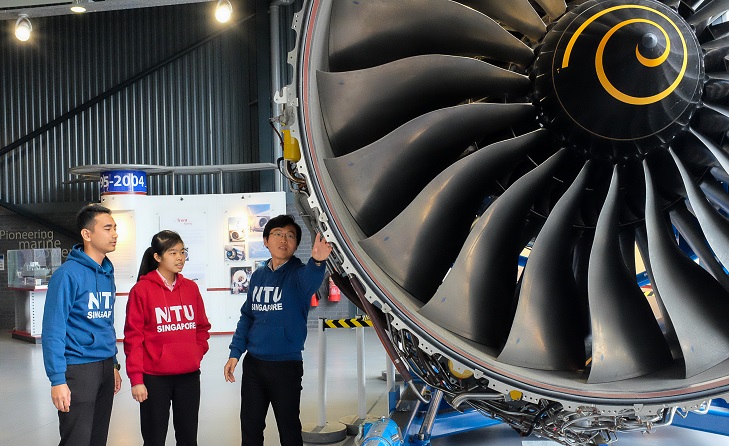Nanyang Technological University, Singapore (NTU Singapore) will be launching six new SkillsFuture Work-Study Degree Programmes for undergraduates who want a deeper understanding of an industry’s inner workings.
A new minor programme focusing on youth-related issues will be offered, NTU said in a press statement on March 14. It will help student teachers understand issues plaguing at-risk youths and guide them in their personal development.
There will also be six new engineering specialisations rolled out to ensure NTU programmes continue to meet changing industry needs brought about by the fourth industrial revolution.
"By collaborating with renowned industry partners, NTU is able to combine classroom learning with structured on-the-job training to equip students with the essential skills required to move into the workplace with confidence," said NTU Provost and Vice President (Academic) Professor Ling San.
"This integration is paramount with the onset of Industry 4.0, and will greatly enhance our students’ employment opportunities in highly competitive industries, while also meeting the sectors’ high demand for quality graduates.”
Deepening industry exposure
To help graduates to be workplace-ready, NTU is ramping up its line-up of work-study opportunities. Six new SkillsFuture Work-Study Degree Programmes (WSDPs) will be launched through the introduction of an apprenticeship track for corresponding degree programmes.
Students from Bachelor programmes in Materials Engineering, Mechanical Engineering (Design), Data Science and Artificial Intelligence, and Maritime Studies can opt for the respective WSDPs. They will complete three mandatory internships – 40 weeks in total – and an industry-sponsored final year project within the four years of their undergraduate programme.
Students pursuing a Bachelor’s degree in Business (Business Analytics) or a double degree in Accountancy and Business (Business Analytics) can choose to take up the WSDP by completing three mandatory internships totalling 36 weeks. Those pursuing the double degree can choose to do two more internships, totalling another 18 weeks.
“Companies today want to be assured that their new hires possess not just deep technical knowledge, but also passion and enthusiasm, as well as the ability to integrate into the organisation. Internships and attachments open such doors, and serve as a useful mechanism for attracting and selecting prospective employees,” commented Prof Ling.
Managing youth-at-risk
NTU's new Minor in Youth Work and Guidance programme will allow undergraduates to gain an understanding of the psychological aspects of human development, as well as the psychosocial issues faced by youth in contemporary societies.
Some topics covered include psychological disorders common in young adults such as eating and depressive disorders, and developmental issues in childhood and adolescence.
Primarily designed for student teachers at NTU’s National Institute of Education (NIE), the Minor programme is also open to all other NTU students, who can select courses under this programme as electives.
New engineering specialisations to match industry demand
In addition, new and existing bioengineering and chemical and biomolecular engineering (CBE) students will have six new engineering specialisations to choose from. They are:
– Advanced Pharmaceutical Manufacturing,
– Machine Learning and Data Analytics,
– Intellectual Property for Chemical and Biomolecular Engineering, and
– Intellectual Property for Bioengineering.
Prospective and current electrical and electronic engineering (EEE) students may choose to specialise in Data Intelligence & Processing, which replaces and updates the existing Digital Media Processing specialisation. This new specialisation will provide training and knowledge in Singapore’s rapidly developing data intelligence and analytics industry, where the skills required are different from those used in traditional multimedia processing methods.
Mechanical and aerospace engineering students can opt for the new Smart Manufacturing and Digital Factory specialisation, focusing on digital advances that are changing manufacturing technologies and capabilities. Industry 4.0 and its components are taught in the courses offered as part of this new specialisation.



